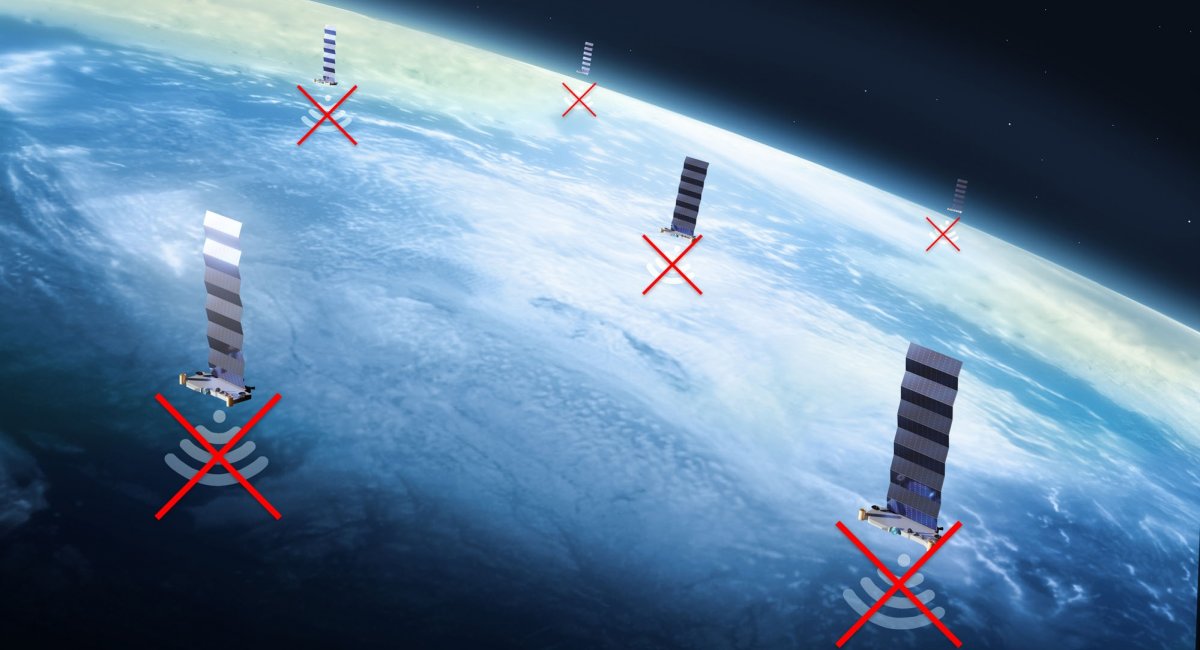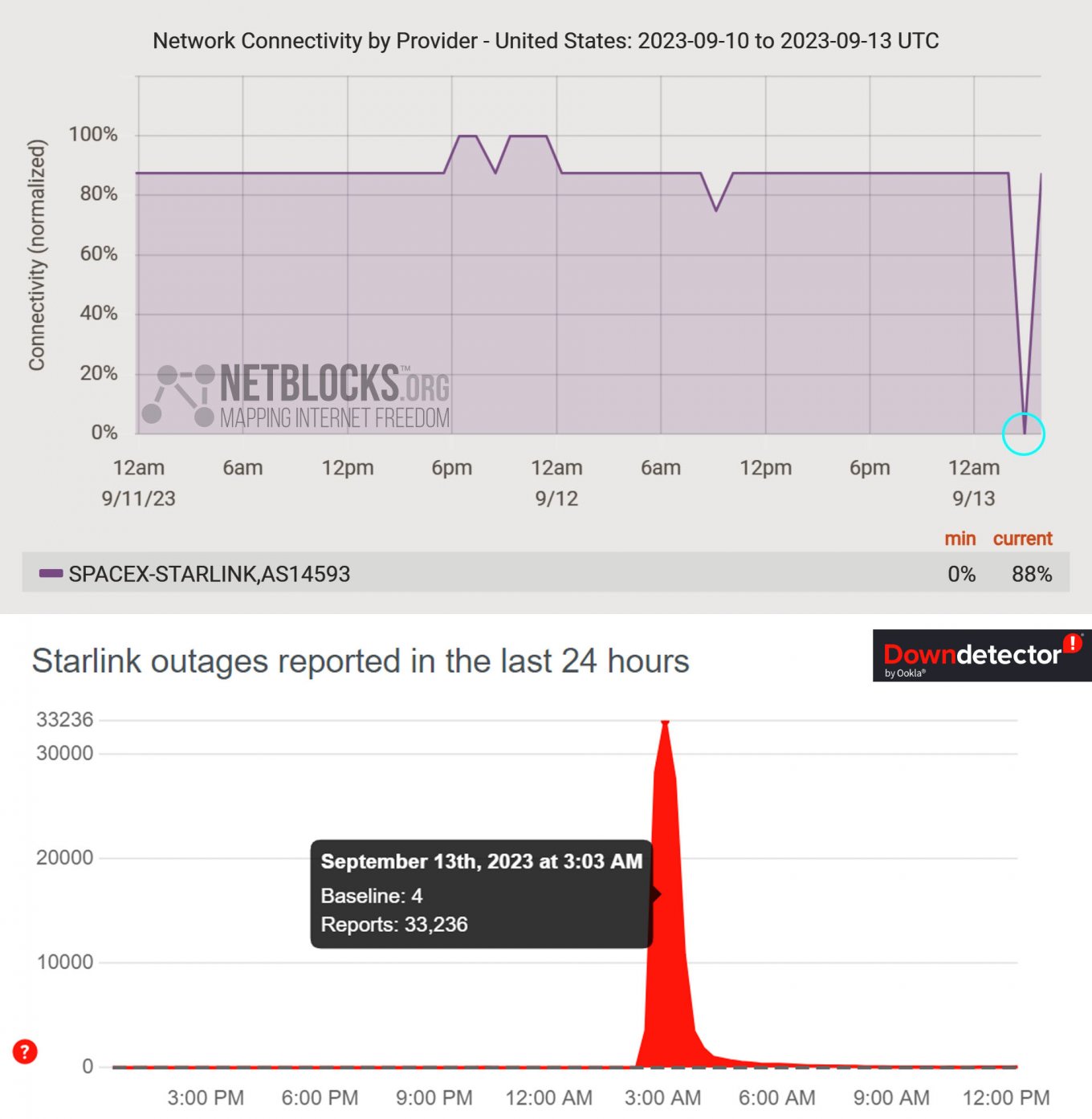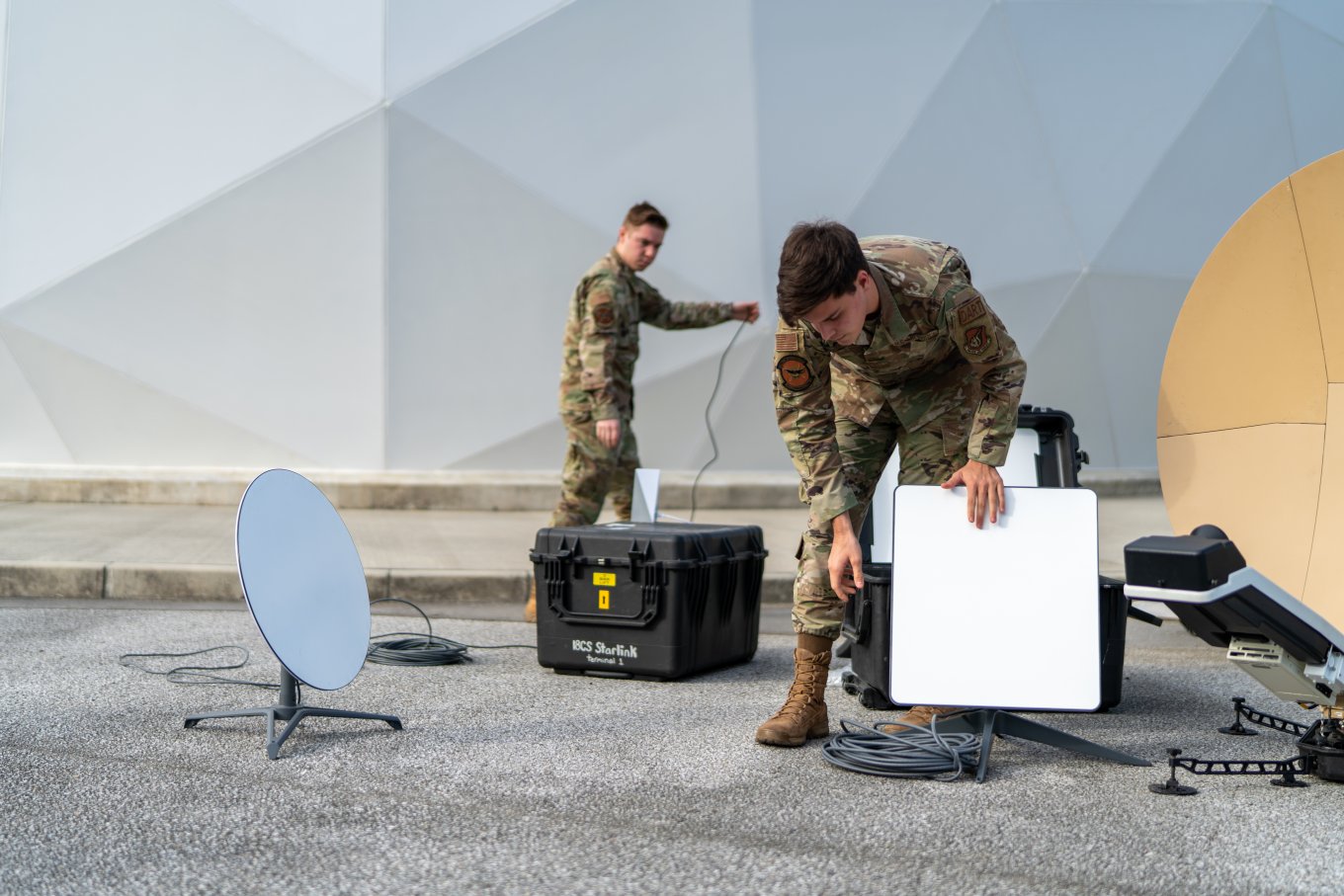
During Ukraine’s attack on Sevastopol, Starlink “crashed” again
Despite the fact that the Pentagon ordered “special” terminals for Ukraine, Starlink suffered a massive failure during the attack on Russian ships by surface drones
On the night of September 13, around 3 am, Starlink satellite internet service experienced a large-scale failure. According to monitoring services, it started around 02:30 and lasted until 04:30.
This is evidenced by DownDetector and NetBlocks, which reported such a global problem observed by Starlink subscribers around the world.

The fact of the problems was also recognized by SpaceX, as evidenced by the corresponding message from the service.
Starlink is currently in a network outage and we are actively implementing a solution. We appreciate your patience, we’ll share an update once this issue is resolved
– Starlink (@Starlink) September 13, 2023
This failure was timed to coincide with Ukraine’s attack on Russian ships in the Black Sea and the bay of occupied Sevastopol. At the same time, while the cruise missile strike hit the Rostov-on-Don submarine, along with the large landing ship Minsk in dry dock, there was a simultaneous attack by surface drones on Russian ships, as declared by the Russian Federation. Three drones were involved, but they were destroyed and the attack was unsuccessful.
And according to the Russian Ministry of Defense, the attack took place around 3 a.m. That is, it coincided with a breakdown in Starlink’s operations.
It should be noted that last year, as it became known thanks to the biography of Elon Musk by Walter Isaacson, Elon Musk had already decided to at least not turn on, according to other information, to specifically turn off Starlink near the occupied Crimea during the attack of Ukrainian surface drones on Russian ships. The reasoning behind this decision was the alleged reluctance to draw the United States into the war.
At the same time, according to a number of reputable Western media outlets, in June of this year, the Pentagon purchased Starlink terminals for Ukraine with the ability to customize signals in order to “realize its goals.” We were talking about 400-500 such terminals.

And while it may be unfair and unreasonable to suspect Elon Musk of preventing another Ukrainian attack on Russian warships that are shelling cities, the coincidence is rather strange. Although turning off the entire Starlink network for this purpose may look like a rather open step.
This is especially true when the US Congress is already calling for an investigation into Elon Musk’s activities, as US foreign policy should be decided by the government, not an individual billionaire. Moreover, the Pentagon has been considering and testing Starlink as one of the global communication systems for its military since at least 2020.

